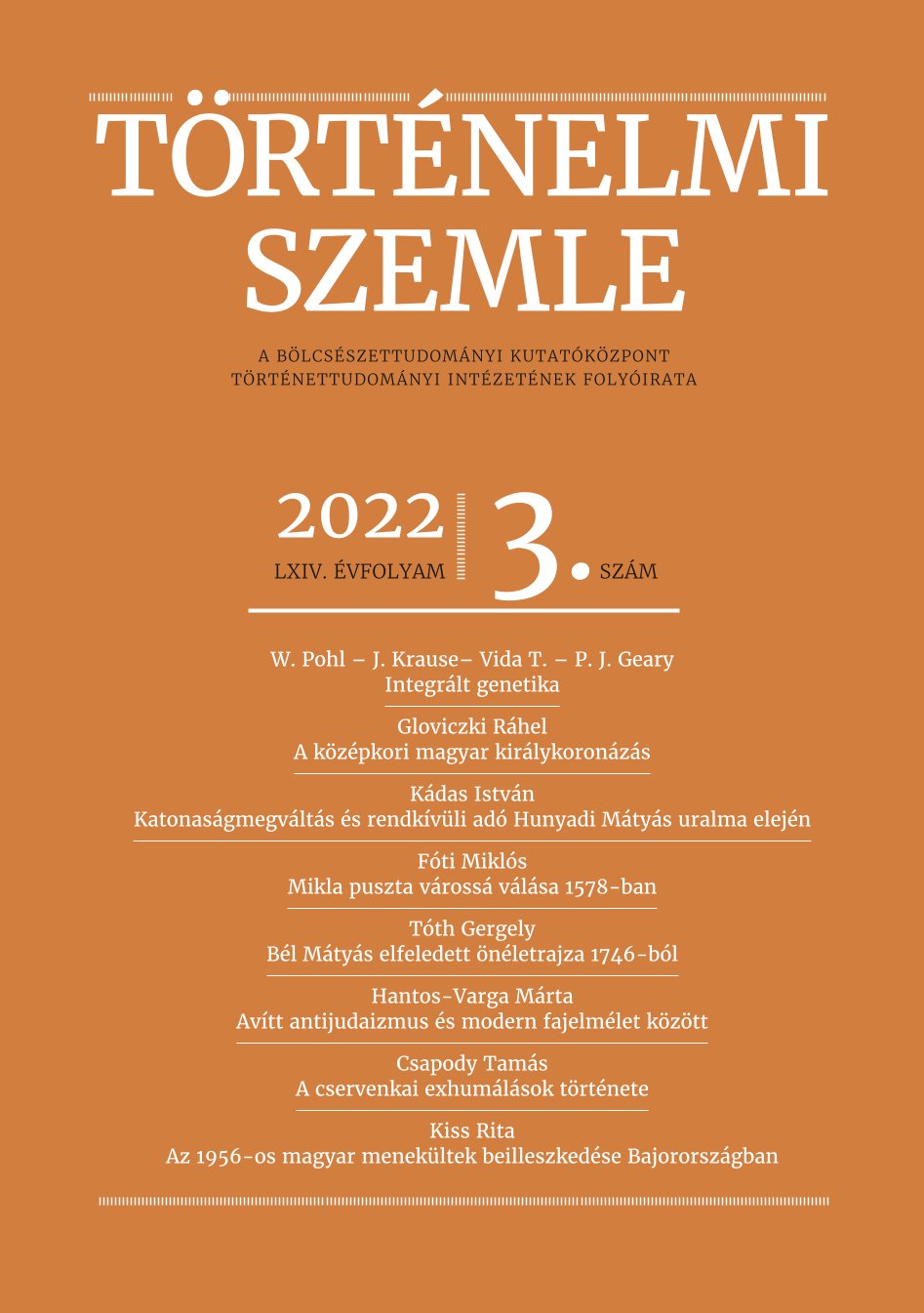Amikor megváltás az adó. Katonaságmegváltás és rendkívüli adó Hunyadi Mátyás uralma elején (1458–1466)
When the Tax is a Redemption. Redemption of Military Service and Extraordinary Taxation in the Early Years of King Matthias’s Reign (1458–1464)
Author(s): István KádasSubject(s): 15th Century
Published by: Magyar Tudományos Akadémia Bölcsészettudományi Kutatóközpont Történettudományi Intézet
Keywords: tax; extraordinary military tax; militia portalis; King Matthias
Summary/Abstract: Extraordinary taxation levied in the first half of King Matthias’s reign was mostly justified by military necessities and generally put to the financing of military campaigns. The amount and administration of the tax, then generally collected under the name of contributio, varied from year to year and from levy to levy. On top of the countrywide taxes, however, there also existed regional levies, with one or more counties offering taxes for particular military ventures. Moreover, the scholarly literature also reckons with a extraordinary military tax, called taxa exercitualis, that would have been levied in redemption of the so-called militia portalis. A detailed examination of extraordinary taxation, and of the connections between taxation and military service, has clearly proved that there was no separate tax for the redemption of military service, distinct from the contributio, and nor is this distinction supported by the terminology. Rather, as had been the case before, it was the personal military service of the nobility that could be redemeed through the paying of the contributio. Accordingly, this tax could not be collected from the tenants of the nobility who served in person.
Journal: Történelmi Szemle
- Issue Year: 2022
- Issue No: 3
- Page Range: 383-402
- Page Count: 20
- Language: Hungarian

